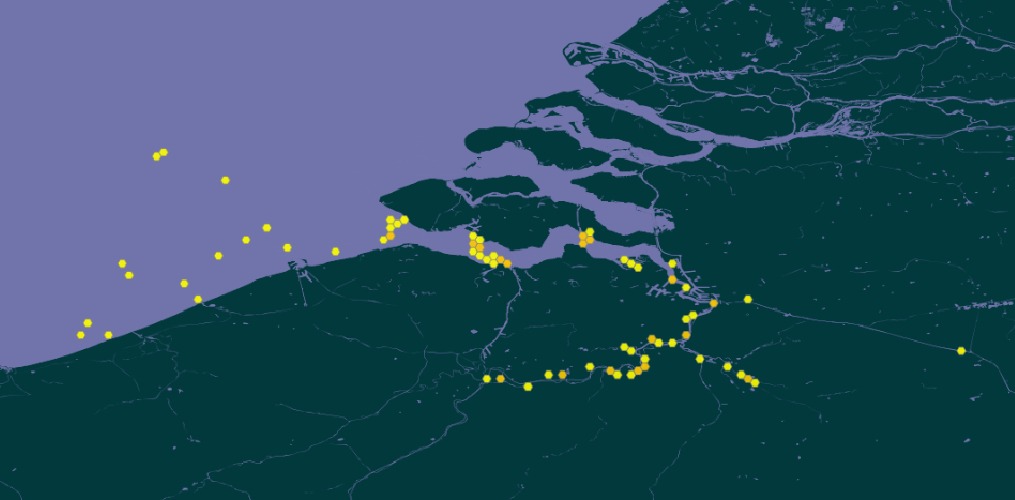
At the end of September, we received important news from our National Distributed Centre in LifeWatch Belgium: the first ETN datasets from the Permanent Belgian Acoustic Receiver Network are now available via GBIF. The datasets include 507,095 occurrences of 10 fish species from Belgian freshwater, intertidal, and marine habitats.
What does that mean?
LifeWatch Belgium uses innovative tracking technologies to understand fishes’ movement behaviour, and get insights into their migration routes. Through acoustic telemetry, they actively track fish through implanted tags that emit acoustic signals.
The importance of having such data and being able to understand fish routes, can be explained in terms of support to species and habitat conservation, and good fisheries management.
Acoustic telemetry data is managed in the European Tracking Network (ETN) data platform. After a lengthy process of elaboration and standardisation, which began in 2020, INBO and Ghent University have made eight datasets available in Darwin Core format as part of their contribution to LifeWatch Belgium.
The datasets in Darwin Core format are now accessible through the Global Diversity Information Facility network (GBIF): an international network and data infrastructure aimed at providing open access data about all types of life on Earth.
The next step will be to make this data accessible via OBIS as well.
Read more at the following link, and stay tuned to LifeWatch Belgium for future developments: https://www.lifewatch.be/news/first-etn-datasets-available-through-gbif